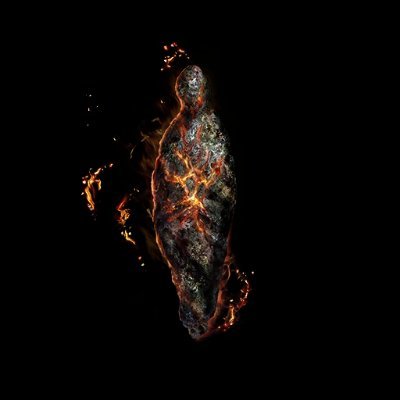deleted by creator
What?! The movie couldn’t be more about masculinity and how it’s warped into a dangerous philosophy. It pretty much predicted incels before there was a name for them. The narrator creates Tyler as his ideal image of the “alpha” male who is successful but still gives the middlefinger to the establishment and who of course is irresistable to women who Tyler only sees as pretty pieces of meat to fuck. He’s who Andrew Tate wishes to be.
But Tyler is actually pathetic. He has his soap business but lives in squalor (which of course he tries to sell as freedom) Sure, he manages to create the Fight Club, but only by preying on other men desperate for a meaning in their empty, sad lives. And he couldn’t have created any of this without the narrator’s money from the settlement too. Which again is shown as this great triumph (because we see everything from the narrator’s eyes), but it’s objectively fully blown psychotic behaviour. The job might have been shitty but I also don’t think we see him ever socialize with his co-workers. He was probably the smelly, weird colleague that everyone was glad to see leave the company.
And until “Project Mayham”'s last act of full-blown terrorism, their pranks objectively would only make them look like assholes too. (it’s full on “just a prank, bro” behaviour). That’s also what Marla explicitedly calls Tyler, an asshole. She’s not attracted to him but the narrator.
The movie’s happy end is not the buildings blowing up, it’s the narrator killing this toxic part of himself and finally stop being alone and unloved.
(By the way, it’s deeply ironic that he simply doesn’t get that the self-help groups just give him a feeling of empathetic community that is completely missing from his life. Which is what the Fight Club is, as well, but there it’s twisted into the old “men would rather hit each other than talk about feelings” bullshit. Again, toxic masculinity.)
It’s also a scathing satire of consumerism, of course. That movie has several layers, that’s why it’s so good.
Sorry for the rambling rant.
TL, DR: The movie is told from the perspective of a deeply delusional man, but objectively he is a pathetic loner who randomly turns into a megalomanical asshole. It literally shows how toxic masculinity can warp your perception of reality and how this “philosophy” can radicalize men following it.
Recently saw a very interesting video which views Tyler as the real one who creates the narrator to make himself look better.. It’s an analysis I have not heard before.
deleted by creator
“Fight club isn’t about masculinity” is a pretty weird take. Especially based on the argument that only incels think about masculinity? I don’t think I disagree with what you’re saying overall, but I strongly disagree with both those ideas.
I mean you might have a point about the article (idk didn’t read) but “masculinity” is used in a lot of contexts, not just that one.
i agree, however both the book and film include the topic of masculinity so it’s not surprising that’s the 101 takeaway.
Is this “article” seriously three paragraphs? It’s like they just wanted to make a headline.
Also, Tyler isn’t an insomniac. He has dissociative identity disorder.Is this “article” seriously three paragraphs?
I believe that’s just the paywall, but I also can’t see it. Also, couldn’t get around it with the usual methods.
spoilers!
actually i kinda like spoilers, that’s why i only watch movie trailers before reviewing the film.
Tyler doesn’t exist, he’s an alternate personality. But Norton’s character literally says he has insomnia, and they show him unable to sleep in multiple scenes. He also has multiple personalities, possibly brought on by years of untreated insomnia.
Multiple personalities is dissociative identity disorder
This movie is one of my favorites because I feel Everytime I watch it, there’s a new corner of society that can be picked a part that isn’t easily noticed the first go around.
This is the best summary I could come up with:
David Fincher’s violent satire was once one of the most controversial films of the 1990s; thanks to the 2019 Fox-Disney merger, the film – and its stomach-churning scenes of middle-class men pulverising one another in squalid basements – is sat right there between Mickey Mouse and The Little Mermaid.
There’s Edward Norton’s narrator, an emasculated insomniac who starts the film gatecrashing group therapy meetings and ends it as a brawling terrorist.
There’s Durden (Brad Pitt), the charismatic jock who goads Norton out of his rut and forms a cult.
It is hardly surprising that the film (and the Chuck Palahniuk novel from which it was adapted) has been linked to some of the most extreme white male behaviour: Fight Club is said to have inspired neo-Nazi fight clubs, incel culture and the excesses of the “alt right”.
While most agree that Fincher’s cult movie is satirising toxic masculinity, some viewers mistook it for endorsement.
“The movie has become part of the contemporary mass-cultural canon through which large numbers of men try to think through masculinity,” wrote the New Yorker.
The original article contains 269 words, the summary contains 179 words. Saved 33%. I’m a bot and I’m open source!
Ah, my classic example for “Did you fail when the people you are critisizing idolize your movie (because the don’t understand it)?”
deleted by creator
Removed by mod





